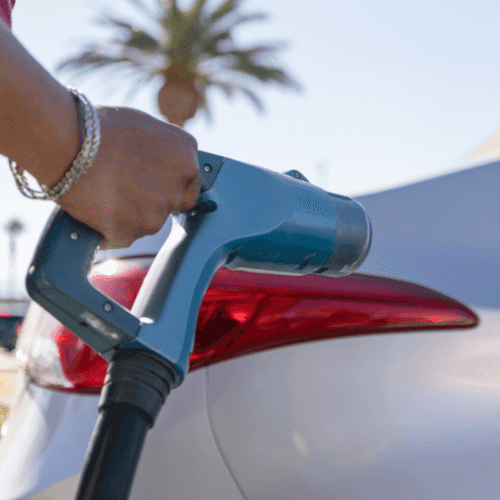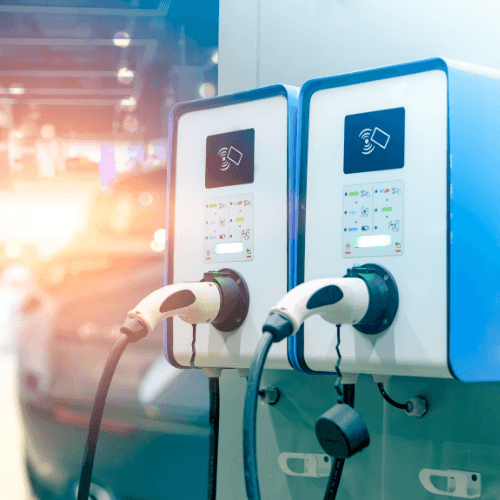
What You Need to Know When Charging Your Electric Car at Home
Being able to charge your electric car at home allows you to reduce the need to plan ahead to find electric car charging stations each time you travel. A simple, convenient, and cost-effective process, it can also help you rely less on workplace or public charging.
With UK government legislation requiring all new builds from 2022 onwards to have an EV charging point, here the Energy Efficiency team at City Plumbing offers a quick helpful guide to charging your electric car at home.
How Do You Charge an Electric Car at Home?
Many EV owners prefer to charge their cars overnight, therefore waking to a fully charged battery to get through the next working day. The safest, and highly recommended way to charge an electric vehicle is to use a dedicated home charging point. This is commonly referred to as a wallbox charger.
While some people may use a standard three-pin charging cable, they’re not designed to cope with high charging loads and also are slower to charge. This has led many energy experts to advise against using them or rather consider them as emergency use only.
What Is a Wallbox Charger?
A wallbox charger is a standalone electric car charger that is fixed to your property's external wall. Wired directly into your home electricity supply, it allows you to simply plug your car in to charge whenever you’re at home and your electric vehicle needs charging via a dedicated EV charging cable.
Most domestic wallbox chargers are fast charging, offering 7.2kW, the optimum for overnight charging. Yet, there’s also options of slower 3kW chargers and smart units that offer an app for wireless control features. An at-home EV charging point will need to be installed by a qualified technician.
What Are the Benefits of Electric Car Charging at Home?
There are several reasons why you should charge your electric vehicle at home, including:
It’s a cheaper way to charge - By charging your car at home you can take advantage of cheaper electricity tariffs, including those off-peak. With many choosing to charge overnight as it usually costs less, many electric cars will allow you to select how much you want to charge. So, you can safely leave your car on charge overnight without damaging your battery or using up any more electricity than you need to.
It’s the most convenient way to charge - With so many people switching to electric, more people are using electric charging points when out and about. From queueing at the workplace to trying to locate the nearest charging point to you on your journey, having the option to charge at home can eliminate much of this.
If your home has solar panels, you can charge your electric vehicle sustainably - By using the electricity generated from your solar panels, you further make use of renewable energy while not only reducing costs but also your carbon footprint.
What Properties Are Suitable for EV Home Charging Points?
Though the UK government is working towards creating more new homes with EV charging points as standard, not all homes are suitable for installing a wallbox charger just yet. A good example of this is those homes that don't have off-street parking. A wallbox needs the charger connected to your electricity supply, meaning those properties with a drive or garage.
Likewise, those rented properties will need permission from their landlord before applying for a charge point installation.
Choose The Energy Efficiency Team at City Plumbing for Your EV Charge Point
Whether you’re looking to install an EV charging point or would like more information on the possibilities of doing so on your property, our Energy Efficiency team at City Plumbing is perfectly placed to advise. With a huge range of public and domestic charge points for all types of use, we’re the experts when recommending low carbon technology solutions to create a greener and energy-efficiency home.
